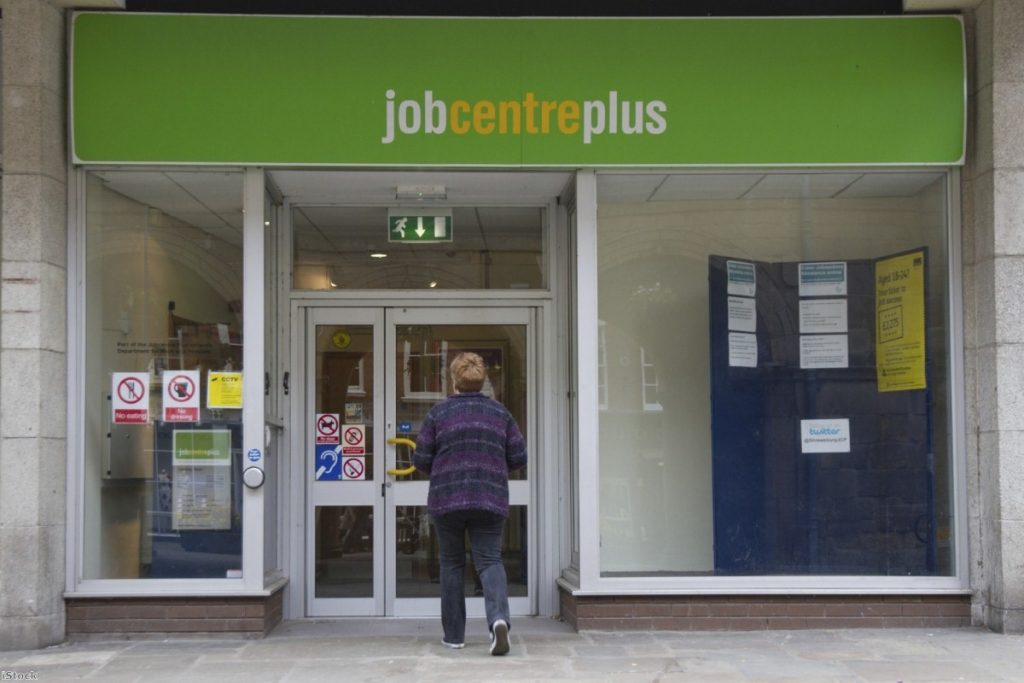If there's one thing this government is good at it's repeating meaningless soundbites. We heard quite a few of them during the Queen's speech yesterday when we were told the government will "support the development of a northern powerhouse", "deliver security for working people" and "support aspiration".
What they are not so good at is recognising their own part in creating or worsening the problems those soundbites suggest they're fixing. Take Theresa May's recent comments about domestic violence victims being let down by the police. She is right of course, but they are also being let down by her own government whose cuts have resulted in the closure of women's refuges up and down the country. And she herself continues to let down the many female asylum seekers who have been victims of violence yet are needlessly locked up in detention centres such as Yarl's Wood. Unsurprisingly, this is never acknowledged.
During his time as work and pensions secretary, Iain Duncan Smith would regularly talk about lifting people out of poverty and restoring their self-worth. Meanwhile numerous studies and reports showed that his own policies were actually driving people into destitution and contributing to mental health problems. We've seen similar hypocrisy over the housing crisis, integration policies, and the treatment of disabled people.
And so, when the Queen spoke yesterday of the government's plans to "increase life chances for the most disadvantaged" many people were understandably sceptical. Earlier this year David Cameron promised an "all-out assault on poverty". In a speech outlining how the government intends to improve the lives of the poorest people in society the prime minister focused on four key areas: family life, mental health and addiction, education and equal opportunities.


All of these issues are linked to poverty but whether they are the causes of it are debatable. On family life, the prime minister said that "children in families that break apart are more than twice as likely to experience poverty as those whose families stay together." Perhaps, but it's not often you see the ex-wife of a top banker queuing up at the jobcentre to claim benefits or the former partner of a politician or lawyer waiting outside a food bank. Families from all backgrounds split up, but those already on low incomes are far more likely to slip into poverty because of it.
The government's plans have placed little emphasis on income, something which for many people is totally out of their control. Instead they point to issues like family breakdown or drug addiction as being the causes of poverty, perhaps because it absolves them of any blame. It means they don't have to acknowledge the impact their own welfare reforms or cuts to services have had.
All of this ties in nicely with the myth that if you do the 'right things' and become a 'hardworking family' you will be supported. Of course, this completely ignores the fact that, according to the Institute for Fiscal Studies (IFS), nearly two-thirds of children in poverty actually live in working households. Which is why, when the prime minister uses the claim that "the number of children growing up in workless households is at a record low" as an example of the progress his government has made on tackling poverty, it is utterly meaningless.
At the crux of the matter is the Conservative belief that poverty is something which is caused by decisions made by individuals rather than by government. The idea that people are poor because they have come from broken families, because they refuse to work or because they spend all their money on drugs. The belief that when someone from a wealthy background experiences addiction or divorce it's sad, but when someone from a low income family does it is reckless.
By redefining what causes poverty, the government may be able to shift the blame elsewhere but they will never be able to truly tackle it. The IFS estimates that by 2020 the number of children living in relative poverty will rise by 50%. The truth is there is very little the government is doing right now which will actually stop that from becoming a reality.
Natalie Bloomer is a journalist for Politics.co.uk
The opinions in politics.co.uk's Comment and Analysis section are those of the author and are no reflection of the views of the website or its owners

